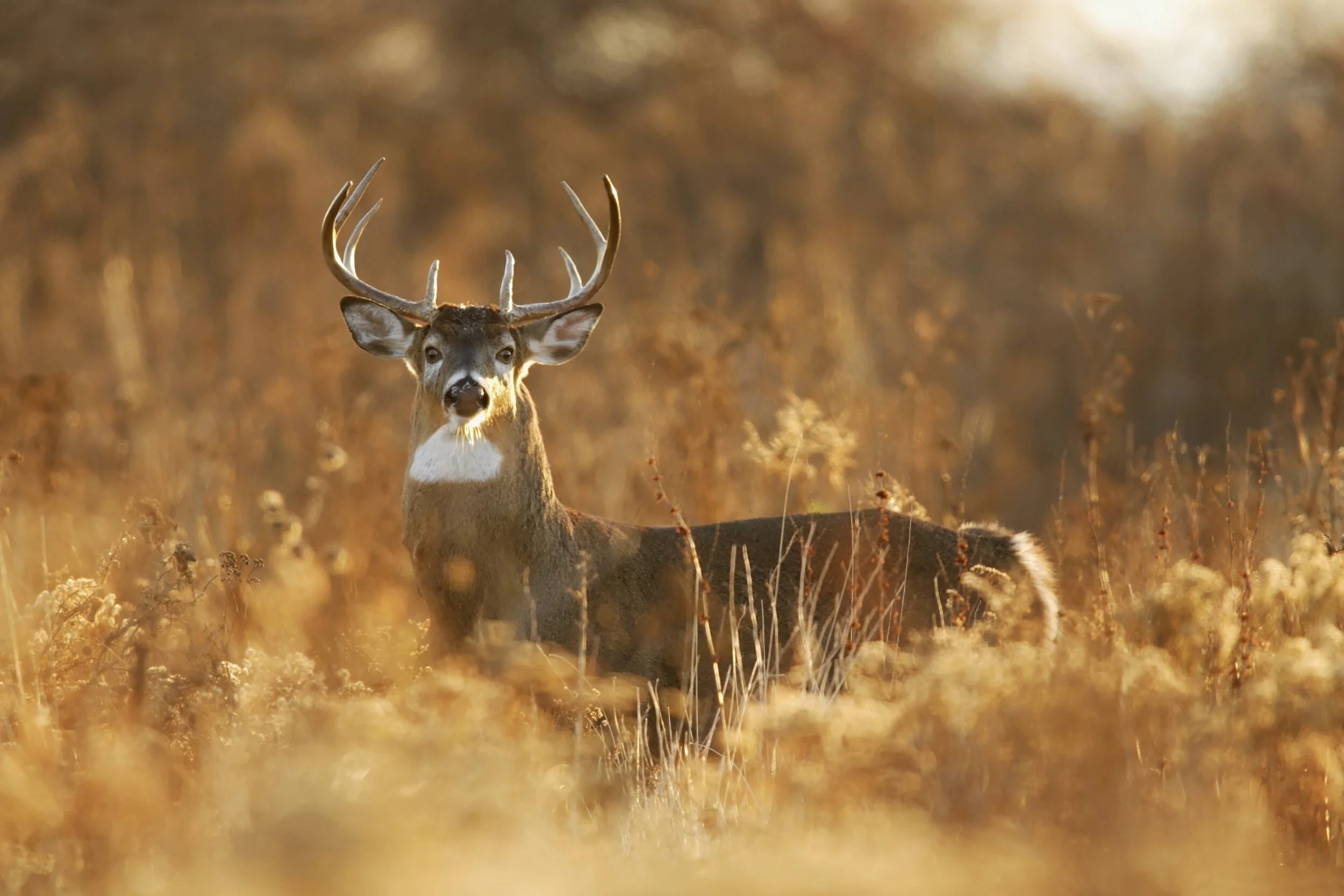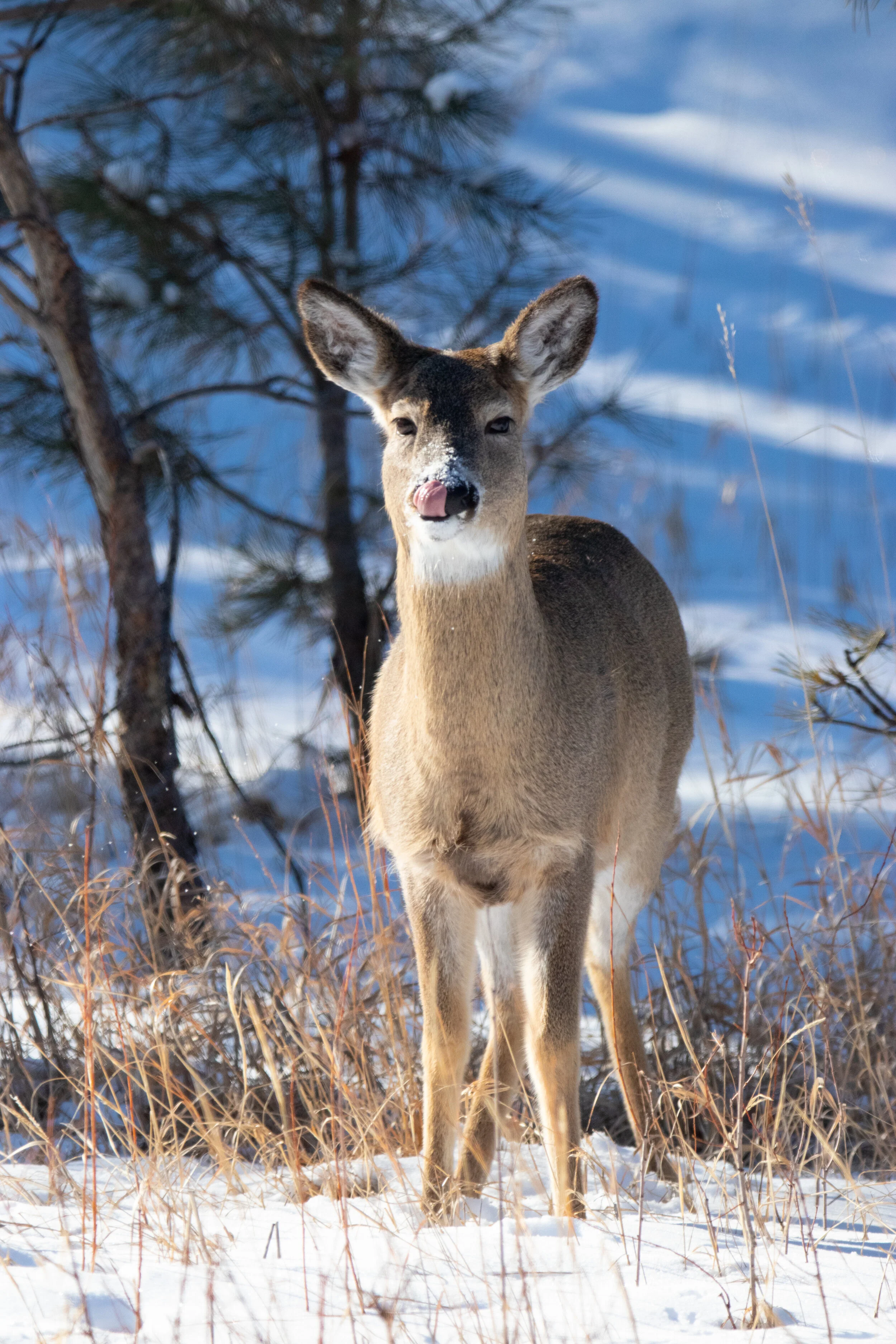Humbled by Deer
Whitetails’ ears are always on the move, directed at any suspicious noise.
I have been outsmarted by deer. Dozens of times. And those are merely the incidents where I was lucky enough to see or hear the creatures evading me. Relative to their innate abilities, I am inept in the wild. I have a daunting amount to learn if I want to move, or even breathe, undetected in their environment.
It is one thing to see a deer from the car, slow down and open the window to marvel at how close to the car they seem unalarmed. It is another thing entirely to get close enough to a deer with a bow to make an accurate and ethical shot. When I visualized it in my head, in the weeks and months before the hunting season, it seemed easy. Walk through the woods (I had done that successfully before), find a deer and quietly creep towards it until I was close enough to be in range on an arrow.
In the field, I quickly realized I was mistaken. Not to mention, poorly equipped for the task at hand.
Most of the deer’s ability to make me feel incompetent stems from their incredible nose. In the right conditions, with favorable temperature and humidity, a deer can smell an approaching human roughly a half mile away. A half mile. When I move through the woods, as quietly and sneakily as I can, I might as well be blasting a loudspeaker downwind to broadcast my position. I learned this lesson on my first hunt on public land, in the forested mountains in central Pennsylvania.
Deer will lick their nose frequently to keep it moist and enhance their smell.
After a few miles of hiking the evening before, and a night of tossing and turning in my sleeping bag I thought I had picked the perfect place. I left camp in the darkness, and worked my way up the ridge to a saddle I had picked out on the map. The air was crisp and the predawn mist chilled my face as I waited for the sun to rise. Without any wind, the silence was deafening. Then, the sharp, nasal whistle of alarm that every whitetail hunter dreads. The hunt was over before it began and a deer that I did not have a chance to see had already vacated the area, after warning any other deer nearby of my presence.
On rare occasions, the wind is on my side and I can hide my scent from the deer. Then I have to contend with their phenomenal hearing. I have startled deer by snapping twigs that I could barely hear. And I was the one stepping on it. Their ears are constantly rotating. Constantly scanning their surroundings for any sounds that could hint at something out of the ordinary. The ironic part, if they are moving in the woods, I rarely hear them. It feels like I am wearing earmuffs and they have supernatural hearing.
If the wind is favorable, and I don’t make any noise, there is still the matter of their eyes. Whitetail’s eyesight is not as strong as their other senses, but levels of magnitude better than mine. Once I was moving slowly along the edge of a thicket of mountain laurel with the wind gently blowing into my face. I gingerly stepped around a clump of foliage and I saw something brown about one hundred yards ahead. Slowly, I brought my binoculars up to my eyes to confirm what I suspected. It was too late. She stared at me briefly, before bounding away with her namesake tail waving at me as she vanished into the thick cover.
In addition to deer’s amazing senses, some likely outside the realm of my perception and understanding, these fantastic creatures are incredibly patient and cunning. They are at home in a domain that is alien to me. Thousands of years of evolution dedicated to surviving in an environment in which I am only starting to become familiar. But missed opportunities have helped me to cultivate heroic perseverance. There will be hours, days and weeks required to assimilate to their habitat.
And next time I watch a white tail disappear, aware that I was outsmarted by yet another deer, I can take a deep breath. I am grateful I have so much to learn from these attentive and intelligent animals.


